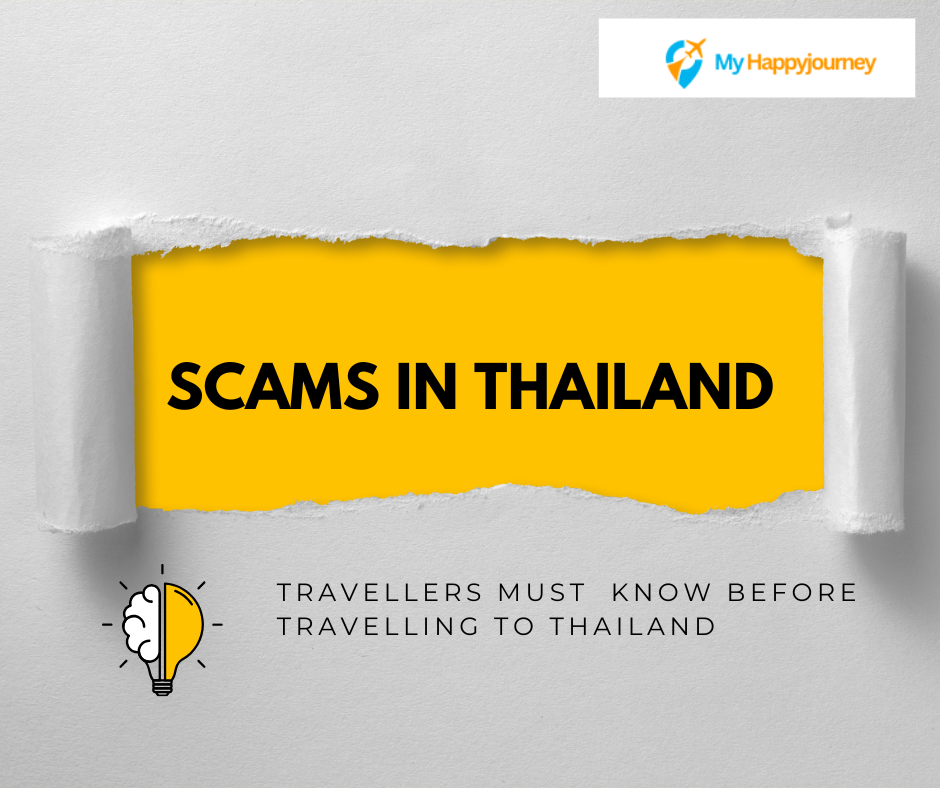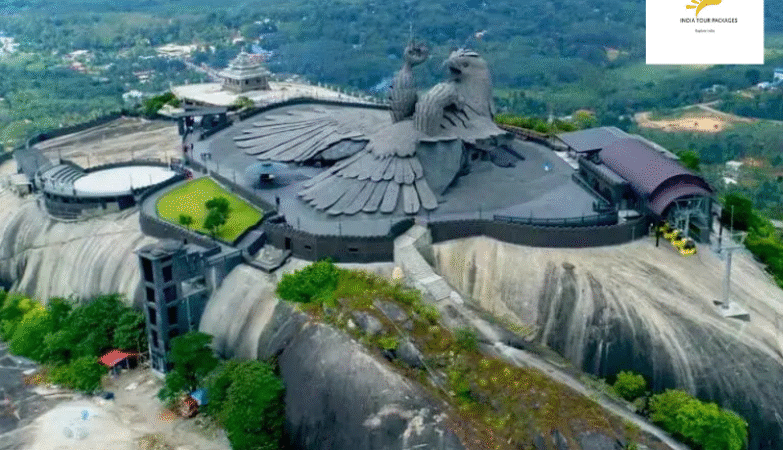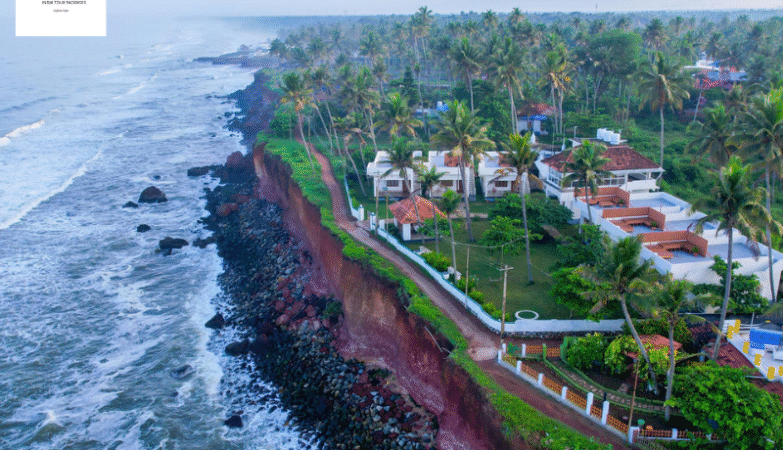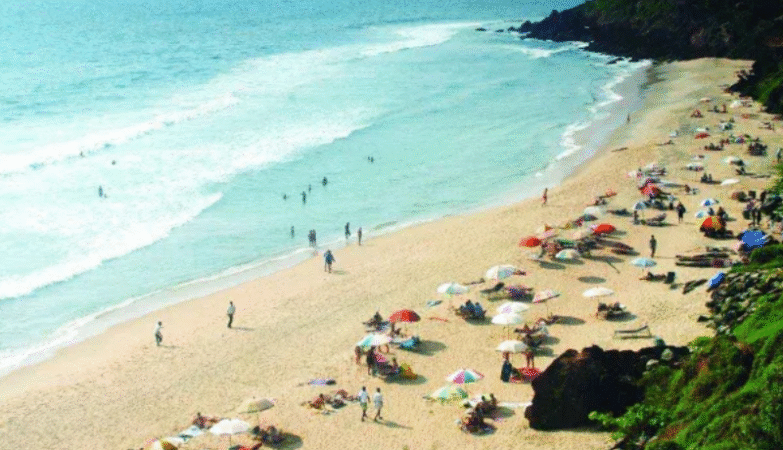
Scams in Thailand: How to Spot, Avoid, and Stay Safe (2025 Guide)
Thailand is one of the most visited countries in the world, welcoming millions of tourists every year. From the bustling streets of Bangkok to the serene beaches of Phuket and Krabi, it’s a paradise for travelers. But like any popular destination, scams are a reality that tourists may encounter. Knowing what to expect not only keeps you safe but also ensures your holiday remains memorable for the right reasons.
This guide is written with E-E-A-T principles (Experience, Expertise, Authoritativeness, Trustworthiness) in mind. It combines first-hand experiences, credible sources, and practical advice to help travelers avoid common scams in Thailand.
Why Are Scams Common in Thailand?
Thailand’s economy relies heavily on tourism. While most locals are warm and welcoming, the sheer volume of tourists makes the country an easy hunting ground for scammers. Many scams are small-time tricks designed to earn a quick buck, but others can ruin your holiday if you are not alert.
The good news? If you know the red flags, most scams are easy to avoid.
1. Tuk-Tuk and Taxi Scams
How it works:
- Tuk-tuk drivers offer a ride for an unusually low price (e.g., 20–50 Baht for a city tour).
- Instead of taking you to your destination, they detour to jewelry shops, tailor stores, or souvenir markets where they earn commission.
- In some cases, taxi drivers refuse to use the meter and charge inflated rates.
How to avoid it:
- Always insist on the meter for taxis.
- Use apps like Grab for fair pricing.
- If a deal sounds too good to be true (like a full-day tour for $1), it probably is.
2. The “Grand Palace is Closed” Scam
How it works:
- Outside Bangkok’s Grand Palace, strangers may approach and claim the palace is closed for a holiday, prayer, or cleaning.
- They suggest an alternative “tour” with a tuk-tuk driver who takes you to gem shops and overpriced stores.
How to avoid it:
- Double-check opening hours online or at your hotel.
- Walk straight into the official entrance; don’t trust street touts.
- The Grand Palace is rarely closed.
3. Jet Ski Rental Scam
How it works:
- Tourists rent jet skis in Phuket, Pattaya, or Koh Samui.
- Upon return, the operator claims the vehicle is damaged and demands huge repair fees (sometimes thousands of Baht).
- Intimidation is often used to force payment.
How to avoid it:
- If possible, avoid renting jet skis in high-risk areas.
- If you do rent, take clear photos and videos before using the jet ski.
- Use only rental companies recommended by your hotel.
4. Gem & Jewelry Scams
How it works:
- A tuk-tuk or taxi driver takes you to a “special government shop” offering discounted gems or jewelry.
- Tourists are convinced they’re getting a bargain, only to discover later the gems are worthless or fake.
How to avoid it:
- Never buy gems, jewelry, or gold from shops pushed by drivers.
- If you really want to buy jewelry, shop only from certified, reputable stores.
5. Fake Travel Agencies
How it works:
- Fake tour agencies lure tourists with cheap packages for island tours, buses, or transfers.
- After payment, tourists either never receive tickets or end up on poor-quality services.
How to avoid it:
- Book tours through official websites, hotel desks, or trusted online platforms.
- Avoid deals that seem too cheap.
- Check reviews on Google or TripAdvisor before booking.
6. Bar & Nightlife Scams
How it works:
- Tourists are lured into a bar with free entry or cheap drinks.
- Later, they receive an inflated bill (sometimes 10x higher) and are forced to pay.
- In some “ping pong show” scams, entry may be free but drinks cost outrageous amounts.
How to avoid it:
- Always ask for the menu with prices before ordering.
- Stick to well-reviewed bars or those recommended by your hotel.
- If a tout aggressively invites you in, avoid the place.
7. Motorbike Rental & Passport Scam
How it works:
- Some bike rental shops ask tourists to leave their passport as a deposit.
- Later, they claim the bike is damaged or stolen and refuse to return the passport until a large sum is paid.
How to avoid it:
- Never hand over your passport. Leave a photocopy + cash deposit instead.
- Rent only from trusted companies or through your hotel.
- Take pictures of the bike before riding.
8. ATM & Currency Exchange Scams
How it works:
- Some ATMs (especially in tourist areas) charge huge fees or are tampered with.
- Currency exchange stalls may give a different rate than advertised.
How to avoid it:
- Use ATMs attached to banks, not standalone machines.
- Always count your cash at the counter.
- Compare exchange rates online before exchanging money.
9. Pickpocketing & Bag Snatching
How it works:
- Crowded areas like night markets, buses, and ferries are hotspots.
- Thieves target tourists with backpacks, phones, or bags slung loosely.
How to avoid it:
- Use cross-body bags with zippers.
- Don’t flash expensive phones or jewelry.
- Be extra cautious in crowded or nightlife areas.
10. Fake Monks & Donation Scams
How it works:
- Men dressed as monks approach tourists, offering amulets or bracelets in exchange for money.
- Real monks in Thailand do not beg for donations in tourist areas.
How to avoid it:
- Politely decline and walk away.
- Donate only at temples or official places.
Tips to Stay Safe in Thailand
- Research Before You Go: Read reviews and forums like TripAdvisor or Thailand travel communities.
- Use Trusted Apps: Grab (for taxis), Agoda/Booking.com (for hotels), Klook/Viator (for tours).
- Keep Emergency Numbers Handy: Tourist Police hotline in Thailand: 1155.
- Trust Your Instincts: If something feels off, walk away.
Final Thoughts
Thailand is an incredible country that offers breathtaking experiences — from island hopping and night markets to cultural landmarks and spiritual temples. Scams are a small but real part of the travel experience. However, with awareness and preparation, you can easily avoid falling victim.
Travel smart, stay cautious, and enjoy Thailand for what it truly is — the Land of Smiles.




